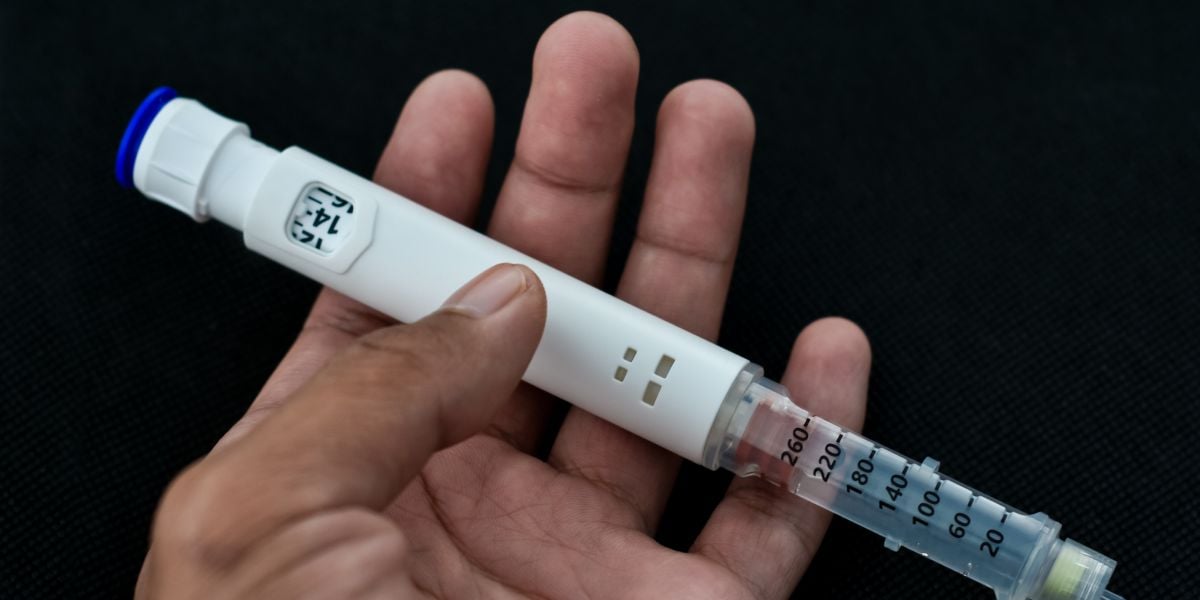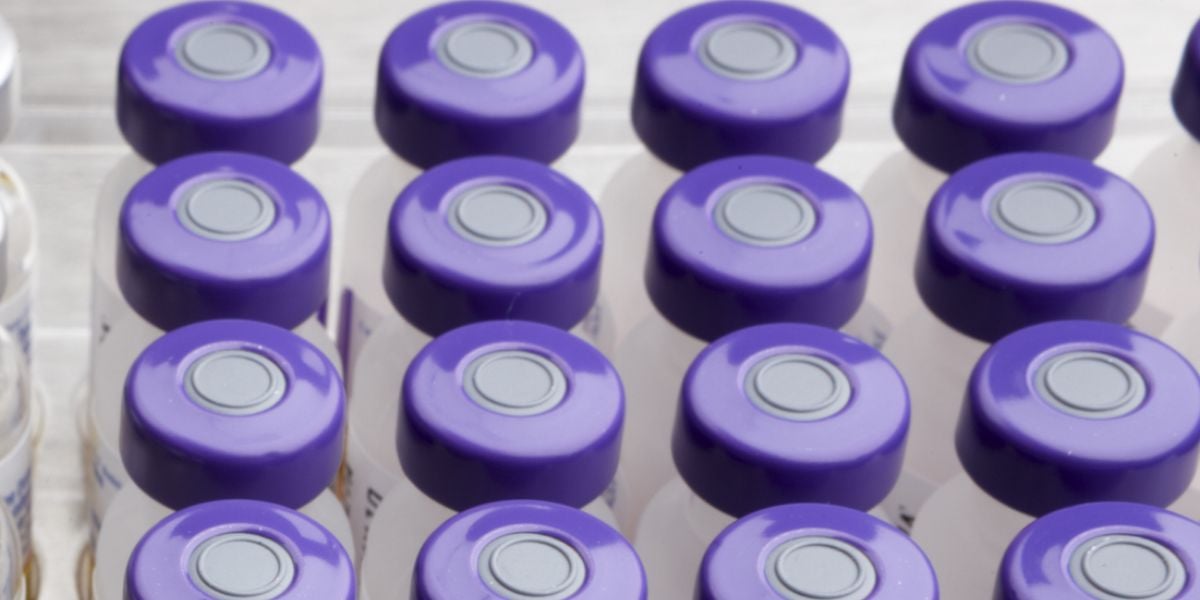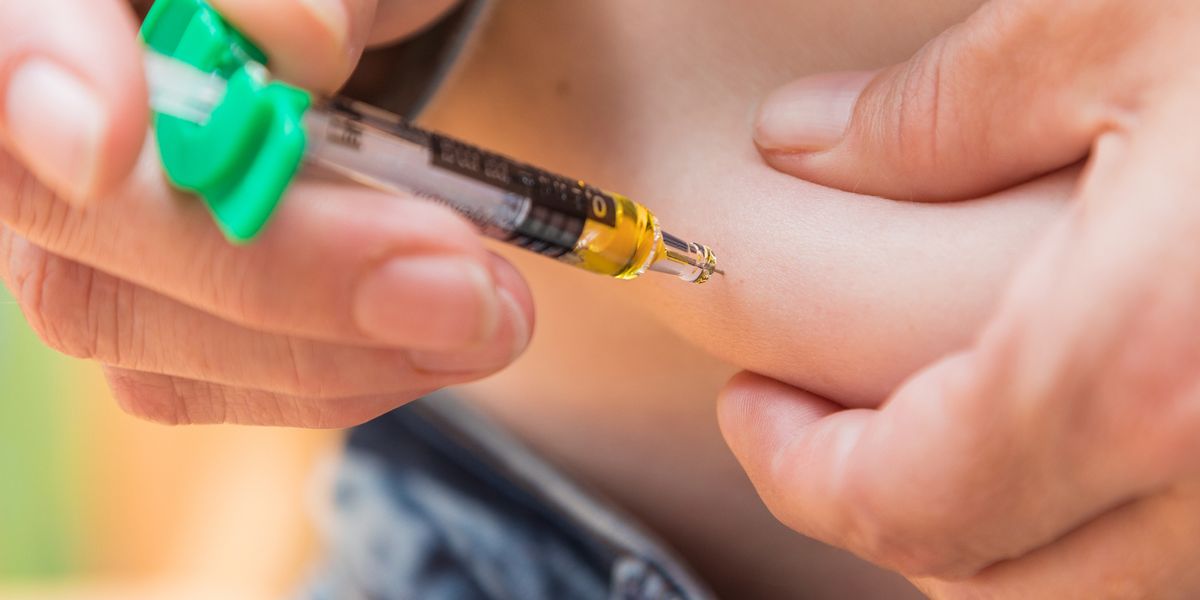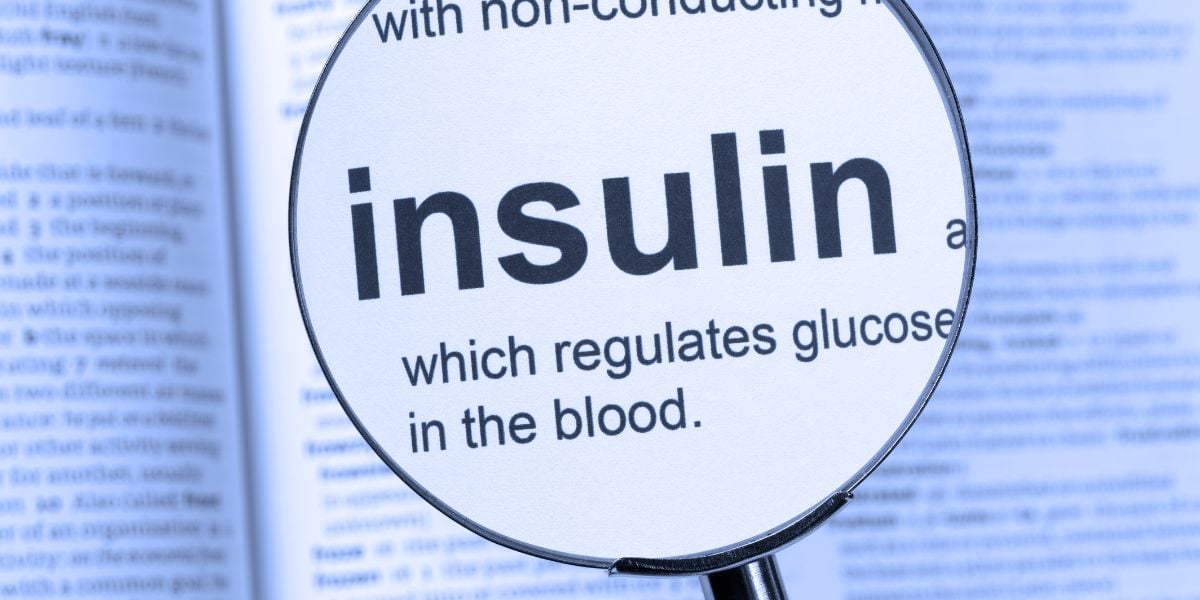Insulin syringes were the only commonly used way of delivering insulin for much of the 20th century. Towards the end of the 1990s, insulin pens became more commonly used.
Whilst less popular these days, syringes are still in use by people with diabetes
Length and gauge of insulin syringes
Insulin needs to be injected subcutaneously, that is into a layer of fat between muscle and the skin.
Insulin syringes are available in a number of needles lengths.
- A short length of needle would be less than 10mm
- A longer length of needle would be over 10mm long
Your health team can help to advise over which length of needle may be best for you.
The gauge (width) of insulin syringes tends to be slim because of the regularity at which injections of insulin are taken.
U-100 insulin syringes
The markings down the side of the syringe shows how many units of insulin are in the syringe.
NHS Diabetes states that, in the UK, insulin is only available to humans as U100 insulin.
This means that there are 100 units per 1ml of insulin.
U100 insulin syringes therefore give the correct unit markings for U100 insulin.
In rare exceptions, patients may take U500 insulin.
This insulin has 5 times the concentration of standard UK insulin. Beware that insulin from abroad may have a different concentration to UK insulin.
Mixing insulin in a syringe
Syringes allow for two different types of insulin to be mixed. Only certain insulin can be mixed.
Do not mix insulin unless your health team have advised you to do so.
Use and disposal of insulin syringes
Insulin syringes these days are for single use only. A specialist sharps clipping device can be used to remove the needle before the syringe is disposed of.
Syringes should be disposed of in a dedicated sharps container to prevent any risk of contracting blood-borne viruses. Sharps containers are available on prescription but you can also buy sharps containers from the Diabetes Shop.
Insulin syringes for pets
Insulin for pets may have different concentrations to units for humans. Your vet should be to advise you over the most appropriate syringe for use on your pet.






